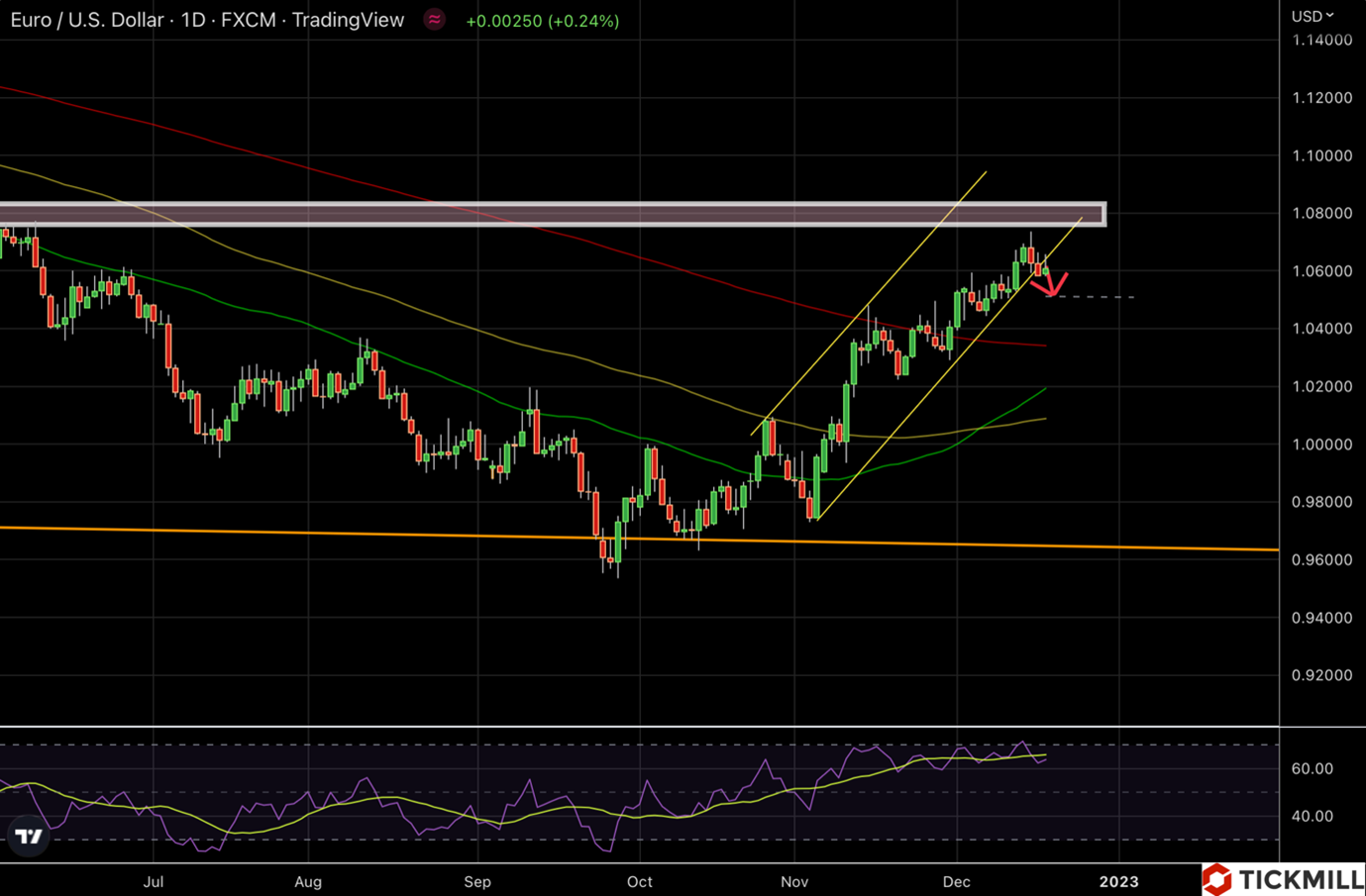Technical Picture Suggests a Breakout in EURUSD with 1.05 in Sight

FX volatility decreased on the eve of the New Year as financial markets digested the main fundamental events (reports on inflation and US labor market, meetings of central banks). The data calendar this week is rather unremarkable, with the Bank of Japan meeting and Conference Board US consumer confidence data due tomorrow, the final estimate of US GDP for the third quarter on Wednesday and Core US PCE inflation data on Friday.
Price action in various asset classes suggests that there are rising expectations among investors of a slowdown in the global economy in 2023. Bonds are bid, while stock and commodity markets are falling after a decent rally in October and November. Investors will continue to look to China as a potential driver of global growth in 2023, but for now, we have yet to see any significant rallies of the Chinese yuan or in local equity markets. This suggests that the risk of China’s disorderly exit from the zero-tolerance Covid policy is now more important than the story about the reopening of the Chinese economy and, possibly, Beijing's reorientation towards a growth policy (which implies cyclical fiscal stimulus).
This leaves the market free to focus on the tight monetary policy around the world. The hawkish stance of the European Central Bank last week undermined the outlook for the eurozone and global growth for 2023 and left the dollar in a rather ambiguous position. On the one hand, the ECB wants tighter monetary conditions, including a stronger euro. On the other hand, the Fed has not ended its tightening cycle and a global slowdown is not usually a good story for a pro-cyclical currency like the euro.
The events of this week are unlikely to open a new chapter in this story. In the US, there will be various data on real estate market and construction, data on consumer confidence and figures on personal income, spending and consumer prices. The core PCE deflator for November is expected to rise modestly by 0.2% in November, in line with the softer CPIs for October and November. None of this appears to be much support for US bond yields, with 10-year Treasuries clinging to the 3.50% area. All this indicates that this week the DXY may return to the 104.00/104.10 area.
Markets may be sensitive to German Ifo Business Confidence Index for December due today. The German PMI data released last week showed a modest gain in business confidence, although remaining still in recession territory. Today's Ifo data is expected to point to a rebound in expectations component to 82 from 80, which is still very low. Any unexpected rally could give the EUR/USD a little boost in sluggish markets.
On the technical side, EUR/USD is unlikely to break to new highs this week, instead a break of the ascending line could drive the pair back to 1.05:

Disclaimer: The material provided is for information purposes only and should not be considered as investment advice. The views, information, or opinions expressed in the text belong solely to the author, and not to the author’s employer, organization, committee or other group or individual or company.
Past performance is not indicative of future results.
High Risk Warning: CFDs are complex instruments and come with a high risk of losing money rapidly due to leverage. 72% and 73% of retail investor accounts lose money when trading CFDs with Tickmill UK Ltd and Tickmill Europe Ltd respectively. You should consider whether you understand how CFDs work and whether you can afford to take the high risk of losing your money.
Futures and Options: Trading futures and options on margin carries a high degree of risk and may result in losses exceeding your initial investment. These products are not suitable for all investors. Ensure you fully understand the risks and take appropriate care to manage your risk.
